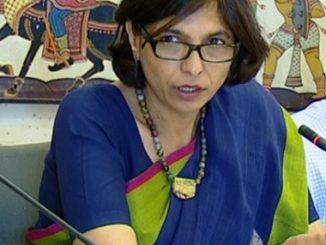
Minister of State for Jal Shakti, Shri Bishweswar Tudu has informed that Monitoring of water bodies, including assessment of their magnitude of pollution, are to be carried out by the State Governments themselves as per the provisions of the statutes on pollution control. Role of Government of India is limited to laying down norms, providing technical support and, in some cases partial financial assistance in terms with the existing schemes.
However, to supplement the efforts of the State Government in this regard, important initiatives have been taken by the Government of India. In the year 2020, water quality assessment of lakes, ponds & tanks was carried out by Government of India in various States. As there is no specific criteria notified for stagnant water bodies, the analysed data was compared with Primary Water Quality Criteria for Outdoor Bathing (PWQC) notified by Ministry of Environment, Forest & Climate Change under the Environment (Protection) Rules, 1986 for verification of compliance status. The monitored results of lakes, tanks and ponds revealed that 453 out of 557 monitored locations were not complying to the outdoor bathing criteria.
Further, under National Water Quality Monitoring Programme (NWMP), Central Pollution Control Board (CPCB), in association with State Pollution Control Boards (SPCBs) / Pollution Control Committees (PCCs), monitors water quality of lakes at 378 locations, ponds at 138 locations and tanks at 106 locations.
The responsibility of prevention of pollution of water sources by industrial effluents primarily lies with the State Government concerned. However, in order to supplement the efforts of the State Government, many important steps have been taken by the Government of India in this regard, as per details given below:
- Regulation of industrial Pollution is implemented through various provisions of the Water (Prevention and Control of Pollution) Act, 1974 under consent mechanism by the respective SPCB and PCC.
- CPCB has issued directions under section18 (1) (b) of the Water (Prevention and Control of Pollution) Act, 1974 regarding non-compliance status of Common Effluent Treatment Plants (CETPs) to SPCBs/PCCs.
- Online Continuous Effluent Monitoring Systems (OCEMS) are installed by the industrial units in the country through directives issued by CPCB for getting real time information on the effluent quality and non-complying units are identified for follow-up inspections and actions.
- Government of India has stipulated general discharge standards and industry specific effluent discharge standards under the Environment (Protection) Rules, 1986 with an aim to prevent pollution in the water bodies.
- Indicative guidelines for restoration of water bodies have been issued by CPCB as a guidance to the stakeholders for ensuring restoration/ rejuvenation of water bodies.
- Various programmes like National River Conservation Programme (NRCP), National Lake Conservation Programme (NLCP), Atal Mission for Rejuvenation and Urban Transformation (AMRUT), Smart Cities Mission, Mahatma Gandhi National Rural Employment Guarantee Scheme (MGNREGS), Repair, Renovation and Restoration (RRR) schemes have been launched by the Government of India for conservation and protection of rivers and water bodies in the country.
It is primarily for the State Governments concerned to monitor, as well as take corrective actions, regarding pollution of water sources by industries or mines in their respective jurisdiction.
It is informed by CPCB that as per laid down criteria, a total of 2,836 Grossly Polluting Industries (GPI) have been identified in the country. Out of these, 6 number are in Odisha, details of which are as below:
| Sl. No. | Industry Name and Address | District | Sector |
|
|
Rourkela Steel Plant (SAIL), At- Rourkela Steel Plant, SAIL , Rourkela, Sundargarh | Sundargarh | Iron and Steel |
|
|
Pardeep Phosphate Ltd., (PAP Plant), Paradeep, Dist- Jagatsinghpur | Jagatsinghapur | Phosphatic Fertilizer |
|
|
Emami Paper Mill Ltd., At- Balgopalpur, Dist- Balasore | Balasore | Pulp and Paper |
|
|
Indian Farmers Fertilizer Corporative Ltd, (IFFCO), At – Musadiha, Paradeep, Dist- Jagatsinghpur | Jagatsinghapur | Fertilizer |
|
|
Paradeep Refinery Project, IOCL, PO- Jhimani, Via – Kujang, Dist- Jagatsinghpur | Jagatsinghapur | Oil Refinery |
|
|
J.K. Paper Ltd., At- Jaykaypur, Koraput, Dist- Rayagada | Rayagada | Pulp and Paper |
Since all of the six industries have been reported to be complying with the environmental standards, thus no corrective action is required in this regard.







Leave a Reply
You must be logged in to post a comment.